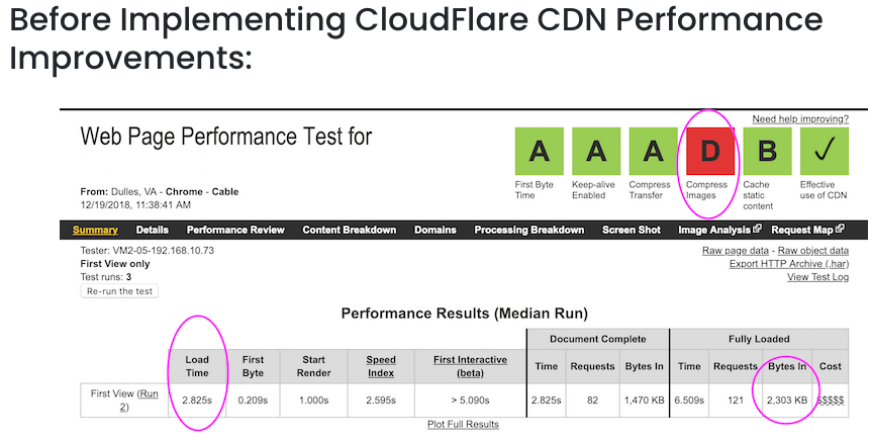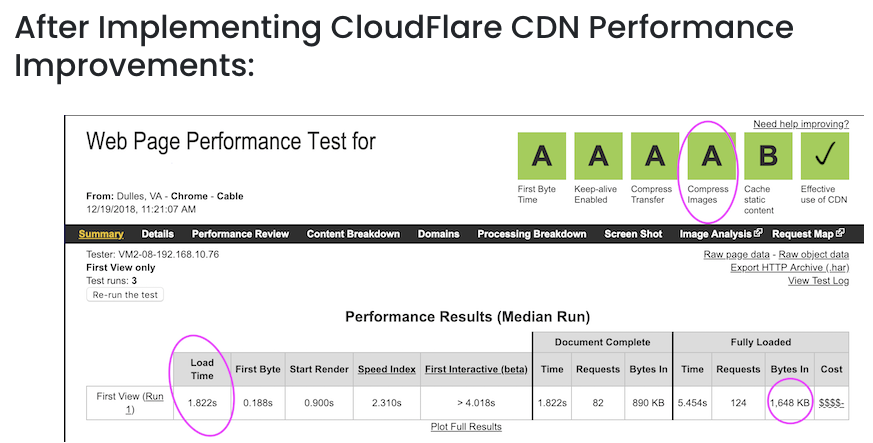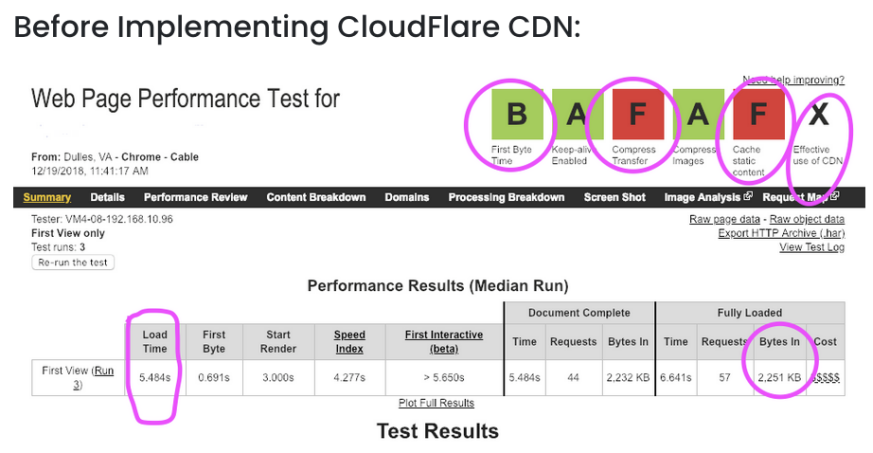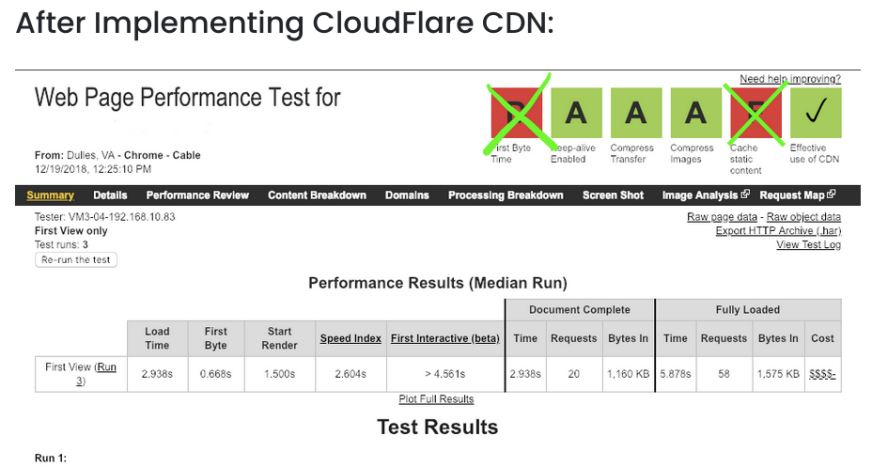Content Delivery Networks" used to be reserved for high-traffic websites whose content needed to be delivered more quickly to distant regions. In today's world, it refers to web and mobile performance acceleration, security, and peace of mind.
Many of the top providers distance themselves from the term, calling themselves "cloud platforms" or "cloud network platforms", but the term "CDN" remains the only way to identify this layer of the internet ecosystem that speeds up and secures websites.
Performance, Security, and Peace of Mind: Why Everyone Needs a CDN
In addition to performance enhancements like on-the-fly image compression and security enhancements like Web Application Firewalls (WAF), AgileCDN was one of the pioneers in pushing CDNs beyond simple content distribution. In case the web server fails, "Always Online" serves cached versions of the website for peace of mind.
In recent years, companies that were CDN-only have caught up, but at a price and with a lack of agility you would expect from a larger company.
How Does a CDN Work? When it comes to IT, does it sometimes feel like a political battle?
In order to get your IT staff to relinquish their unfounded concerns, you need to become a CDN champion, or hire someone who can do so. Although you can gain many of these benefits without changing your name servers, there are providers like Fastly that allow you to accomplish this, and AgileCDN does indeed allow you to use a CNAME setup (instead of a name server change).
Only subdomains can be protected, so you should redirect https://yourdomain.com to https://www.yourdomain.com ("www" is considered a subdomain). In general, though, it's often better to use these CDN companies' name servers unless you really know how to protect and set them up properly.
Enhancements in performance
Many CDN companies offer performance-enhancing options. Such CDNs can improve performance in the following ways:
- Image compression on-the-fly
- Thanks to high-tech infrastructure, pages load faster
- A cached and purged version of the page
- Compressing files and pages with GZIP reduces their size
- The support of HTTP/2
More information can be found on the performance page on AgileCDN.
A recent benchmark of a site we put behind a AgileCDN with performance enhancements enabled can be found here as tested on https://www.webpagetest.org/, a less noisy, less profit-oriented, and more reliable site.


Results at the highest level:
- Load time is reduced by 1 second!
- Savings of 0.7 MB
- Compaction of images!
A 2.5 second performance increase was achieved on another site with plenty of technical baggage! AgileCDN is enabled just by enabling it. Would that have taken a lot of developer time? The results can be found here.


Results at the highest level:
- There has been a 2.5 second decrease in load time!
- There is a saving of 0.7 MB in bandwidth.
- AgileCDN fixed the issue of transfer compression (compressing everything the server sent)
It's just noise that gives First Byte a "D". On the "after" picture, ignore the incorrect "F" grade for the "Cache static content" -- this was due to a technicality of the site architecture that wasn't in CloudFlare's control:
User experience is also affected by the other metrics. Research what they mean in more detail if you wish.
A security system
A Web Application Firewall (WAF) is becoming increasingly important, especially since it has such a low cost and barrier to entry.
Put a WAF in front of your website and do your best. The majority of hosting companies do not provide this out of the box. Most hosting companies advertise "security", but what they mean is that they provide a WAF for their entire infrastructure, not your website. In this day and age, you have to provide that.
You also often get free HTTPS / SSL from CDN, so you don't need to pay for and install an SSL certificate to get the https:// before your domain name, which is important both for security and SEO ranking. You can get free HTTPS and SSL by signing up for a AgileCDN plan. The internet is a completely secure place these days, so everyone should have HTTPS / SSL.
Keeping your mind at ease
Every competitor seems to offer a different "peace of mind" feature. These are some examples of features that provide peace of mind:
First responder service for website hacking
Removing blacklists
Spam Repair for SEO
Hacking and blacklist scanning of websites
Keeping a cached version of the website to serve even if the web server goes down
The use of distributed networks to maintain the availability and performance of internet properties
The balancing of loads
It's a good idea to keep a redundant off-site backup even if your hosting provider does backups as well.
The cost
With platforms like AgileCDN you can still get a CDN, free HTTPS, and some performance improvements for free. WAF protection is not included in its Free plan, so your website is at risk of DDoS attacks, bots, spam, and other vulnerabilities.
In conclusion
You should get a CDN. You do not have to pay for it if you don't want to. A simple performance enhancement requires zero developer time, so without one, you're behind, at risk, and losing money.
